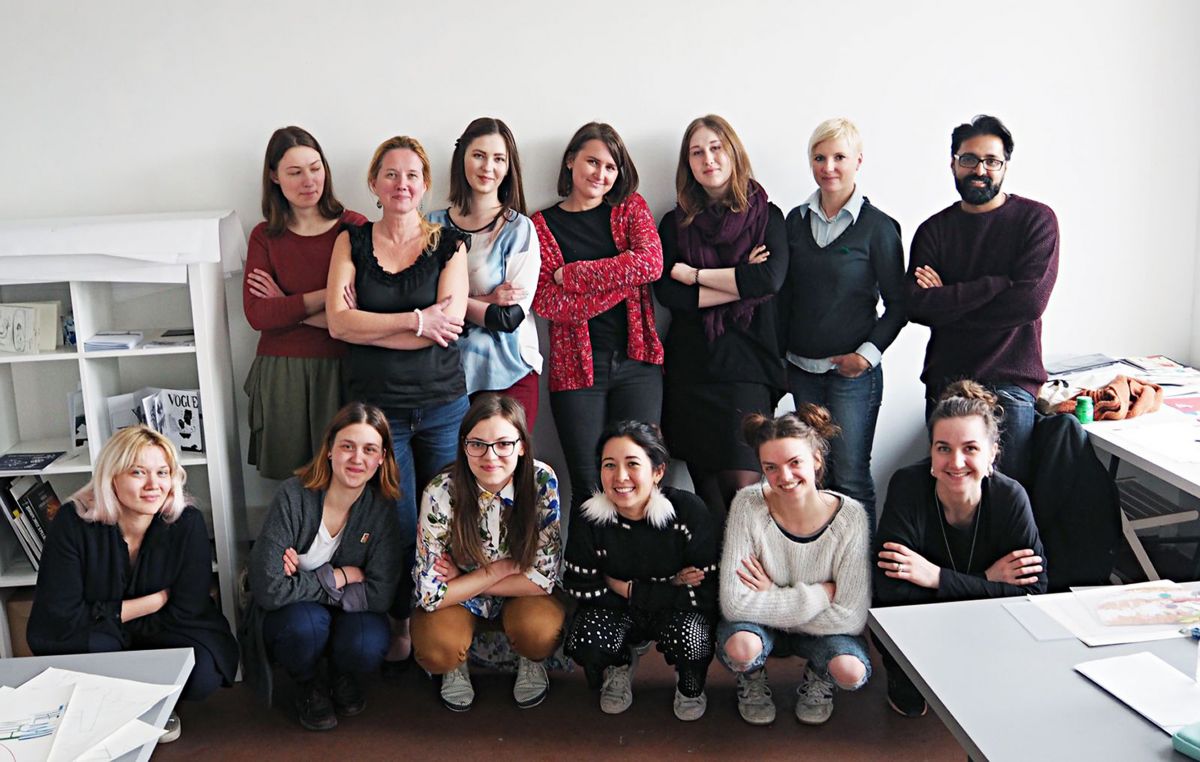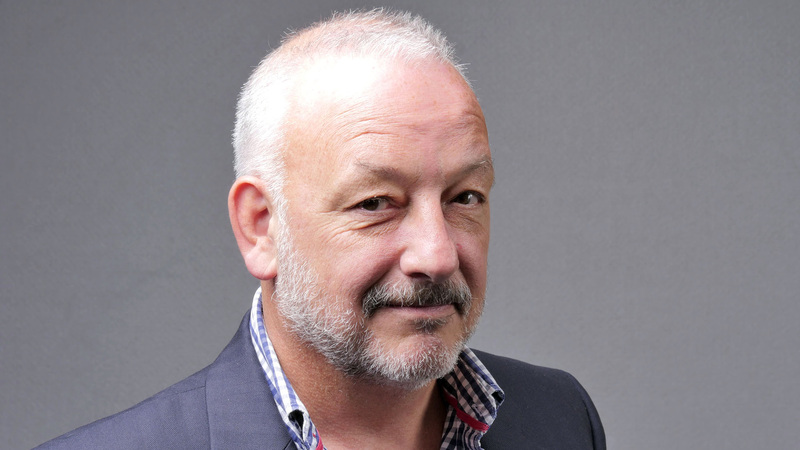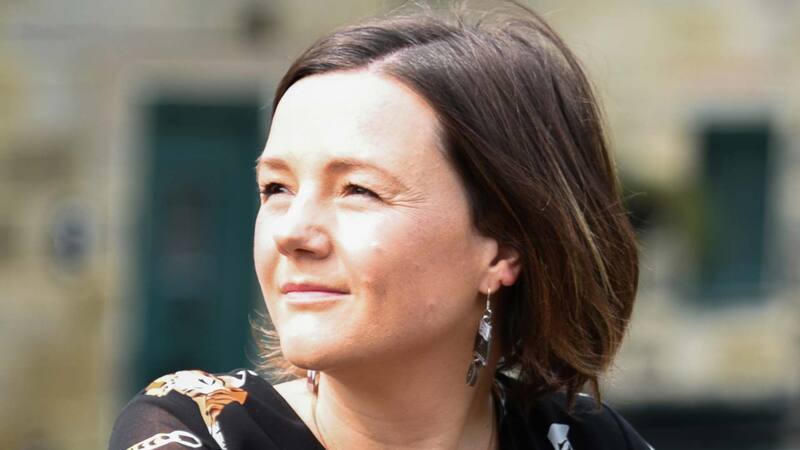You are viewing your 1 free article this month. Login to read more articles.
Pop art hits west London
An ambitious cultural exchange backed by Arts Council England saw illustrators from the Market Focus countries and the UK collaborate on a book brief, the fruits of which are displayed in an exhibition that opens today (10th April). Its protagonist, Pop Up Projects’ project manager Bhavit Mehta, outlines his company’s role—and its goal—to Tom Tivnan.
Tom Tivnan: Why was Pop Up Projects set up, and what is your manifesto?
Bhavit Mehta: Pop Up is a non-profit organisation that works with educational, literary and cultural organisations to enable young people, teachers and families from all walks of life to read more widely, write more creatively and develop visual storytelling skills. We are an Arts Council England (ACE) National Portfolio Organisation.
In the UK we are focused on working with schools in deprived, isolated and otherwise challenged communities through Pop Up Festival, a national children’s literature festival for schools. Between 2011 and 2017, more than 60,000 pupils (aged three to 14) and 2,000 teachers in 105 schools across England and Wales experienced 2,000 author workshops and received 35,000 new books, igniting imaginations and inspiring future storymakers. This work has had a measurable, transformative impact on reading and writing skills, as well as teaching practices. Our model is simple: we connect classrooms with quality, contemporary books, and their authors, and celebrate reading for pleasure, creative writing and visual storytelling.
What sort of event are you typically involved in?
We deliver author-led Creative Professional Development opportunities in which writers share expertise—particularly around creative writing, illustration and storytelling processes—with educators. We run Pop Up Lab, an annual, roaming practice-sharing conference for adults in education and literature, and Pop Up Hub is our child-centred digital platform showcasing programmed books, inspiring storymaking and self-publishing, and helping teachers to share creative teaching and learning resources.

Bhavit Mehta far right with the participants in the illustrator exchange at the Vilnius Academy of Arts
How did Pop Up Creators come about, and what is the scope of the project? How are you rolling it out at LBF?
We want to be at the heart of initiatives to seek out, nurture and champion ethnically and linguistically diverse aspiring young writers and illustrators, in an effort to increase diversity in UK children’s publishing. Pop Up Creators is a way for us to help make that happen. The programme, funded by ACE’s Ambition for Excellence programme, included our most ambitious project yet: an exchange of illustrators between the three Baltic Market Focus countries and the UK, which saw 18 profes- sional artists working with small groups of talented, aspiring young artists at educational institutes and at a summer school hosted across the four nations.
Our four publisher partners—Nobrow (UK), Päike Ja Pilv (Estonia), Vilnius Academy of Arts Publishing House (Lithuania), kuš! (Latvia)—set participants a challenge:
to use both sides of long, blank piece of paper (a "leporello", or concertina frieze) into a graphic story, with no unifying theme or aesthetic. We launch the work of the 150 artists who completed the project today, at an exhibition to coincide with the London Book Fair and its Market Focus scheme. Through the potent medium of illustration and comics, the artists and their mentors, collectively, represent the collaborative spirit of European-ness.
We are thrilled to be sharing these stories and, we hope, this project will launch the careers of some of the exceptional young artists we’ve discovered.
Are there long-term plans to continue this cultural exchange after the book fair?
We expect this project will be a catalyst for an ongoing cultural exchange between the UK and the Baltic countries. Through legacy symposiums in London (in April) and Tallinn (in June), we’re bringing together all the project’s major partners and stake-holders to brainstorm ideas for future collaboration.
Pop Up is also introducing a new digital platform, Pathways, developed in collaboration with illustration agency Inkygoodness and with seed funding from ACE. Its aim is to seek out, curate and showcase ethnically and linguistically diverse illustrators and comic artists from the UK and Europe direct to children’s publishers. Pathways will help to support these artists as they take up pathways in kids’ publishing, nurturing their talent through a programme of industry-focused learning and bespoke training opportunities, supported by three UK Bridge organisations: Artswork, Festival Bridge and Royal Opera House Bridge.
Is the value of illustration sometimes overlooked by those who work with children on literacy and language development?
We often underestimate the role that children’s books and illustration can play in furthering cultural exchange, and illustrated books, comics and graphic novels often don’t earn as much respect as other forms of children’s literature—particularly in terms of bettering language development. We believe that comics should be on the curriculum and that children of all ages should be encouraged to read picture books. There’s a stigma around visual stories which teachers need to eradicate.
Visual storytelling has a pivotal part to play in the enjoyment of reading and the cultivation of life-long readers and, perhaps more importantly in current times, visual stories can be accessible across all languages, abilities and ages. Pictures are as valid as words and have the power to cultivate better readers and writers. Side by side, words and pictures deepen comprehension and make complex ideas accessible.
Artwork from the project will be displayed in a free collection, The Pop Up Creators: Exchange Exhibition, at the Royal Over-Seas League in Mayfair from 10th April to 20th May
There are numerous funding cuts to the teaching of arts subjects, particularly in secondary schools. What would your argument to the government be about the importance of creative arts subjects?
It’s important to know why creative arts subjects are being cut in schools—is it due to funding pressure, or increased emphasis on core academic subjects? It is most likely both. If arts subjects continue to be seen as soft options of lesser value by students, teachers and parents, organisations such as Pop Up need to continue to do research and share understanding about the benefits of creativity and the arts, not only in terms of developing core skills such as literacy, but also for mental wellbeing and the impact it can have on the creative sector, which is the fastest-growing sector of the UK economy.
Schools are prepared to put their hand in their pocket when it comes to allowing their pupils to engage with writers, illustrators and storytellers. Pop Up’s core funding comes from ACE, but our work in schools isn’t supported by government funds. We bring clusters of schools together and ask them to financially commit to a minimum three-year partnership, so that pupils experience live literature once in every academic year. Schools themselves fund 50% of the work and, in some cases, the Paul Hamlyn Foundation supports the rest.
At a time of a national decline in reading standards, and little or no access to books for the least well-off in society, we innovate and intervene. Our work is motivated by the need to bring live literature to children of all economic backgrounds, as much as to impact how books are taught to, and experienced by children. Change is evidenced because schools have rightly embedded this rich literary venture into their academic year. We only hope for this to be a model for other schools and learning communities across the country, and for the government to bear witness to the positive impact this has had.














